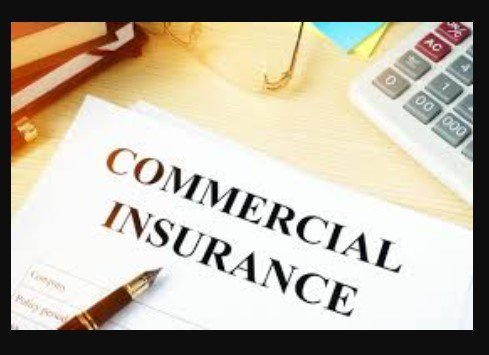Compare Commercial Insurance Policies

Compare Commercial Insurance Policies
Getting the right business insurance is one of the most important things you will do as a business owner. Insurance for businesses is like a safety net; it protects them from many risks that could destroy their finances without insurance. There are, however, so many business insurance policies out there that it can be challenging to figure out which ones you need and how to compare them properly.
This piece will help you compare commercial insurance policies by explaining the main types of coverage, the things you should think about when picking a policy, and how to make the best choice for your business.
Compare Commercial Insurance Policies
Businesses buy different types of commercial insurance to protect themselves from losing money because of accidents, injuries, property damage, and other unplanned events. These policies can cover a wide range of risks, including natural disasters, employee injuries, cyberattacks, and lawsuits. What kind of commercial insurance a company needs will depend on its type of business, its size, and the amount of risk it faces throughout its activities.
Despite the uniqueness of each business, the majority of business insurance plans can be classified into one of these main groups:
Property Insurance
Your property insurance will cover the cost of repairs or replacements if a fire, theft, vandalism, or natural disaster damages or destroys your buildings, equipment, goods, or furniture. Property insurance is essential for companies that have a physical location to protect their assets from these risks.
General Liability Insurance
One type of business insurance that is very popular is general liability insurance. It keeps businesses safe from third-party claims of harm to people or damage to property caused by business activities. In the event that a customer slips and falls in your shop, this policy would cover their medical bills and any legal fees that may come up.
Workers’ Compensation Insurance
Workers’ compensation insurance provides benefits to employees who suffer injuries or illnesses at work. It protects the company from lawsuits that could happen because of accidents at work and pays for medical bills, rehabilitation, and missed wages. Laws in most states say that companies with employees have to have workers’ compensation.
Professional Liability Insurance
Professional liability insurance is important for companies that give clients services or advice. We also refer to it as errors and omissions (E&O) insurance. This policy shields you from claims of negligence, mistakes, or omissions that cost clients money. In fields like consulting, accounting, law services, and healthcare, it is a must.
Commercial Auto Insurance
Commercial auto insurance is required if your business uses cars for supplies, transportation, or any other reason. This insurance shields your company from the costs of car accidents, theft, and vandalism. Personal auto insurance doesn’t usually cover accidents that happen at work, so businesses with a fleet of cars need commercial auto insurance.
Business Interruption Insurance
If your business can’t run for a short time because of a covered event, like a fire, natural disaster, or other disaster, business interruption insurance will pay for your lost income. During the time it takes to get back to normal, this insurance can pay for fixed costs like rent and utilities.
Cyber Liability Insurance
Businesses that store private information or heavily rely on digital platforms should consider obtaining cyber liability insurance due to the increasing frequency of cyberattacks. This policy covers the costs of legal fees, customer notifications, and credit tracking services that come with data breaches, hacking, and other cybercrimes.
Health Insurance
Although most people don’t think of health insurance as business insurance, companies with workers should consider it. Offering health insurance is a good way to keep employees healthy and productive, as well as to attract and retain good employees. Many small businesses offer group health plans to their employees, enabling them to benefit from lower premiums.
How to Compare Commercial Insurance Policies
It’s important to look at each business insurance policy’s coverage, premiums, limits, exclusions, and customer service when comparing them. When considering policies, these are the most important things to keep in mind:
Identify Your Business Needs
It’s important to think about the risks your business faces before you start comparing plans. Your insurance needs depend on your business type, location, number of employees, and products or services.
A store might need property insurance and general liability insurance, while a tech company might need professional liability and internet liability insurance. When you know your risks, you can choose policies with enough security.
Understand the Coverage Limits
Coverage limits are the most the insurance company will pay out for a claim. They are written into every policy. It’s essential to make sure that the coverage limits match the risks your business might face when you’re reviewing policies. A policy with too little coverage might not be able to pay for big losses, and a policy with too much coverage might have rates that are too high.
Evaluate the Exclusions
Insurance plans contain exclusions, which indicate that the policy does not cover certain things or situations. For example, standard property insurance plans might not cover natural disasters like floods or earthquakes, so you’ll need extra coverage. To avoid gaps in coverage that you didn’t expect, it’s important to carefully read through these exceptions.
For instance, general liability insurance typically does not cover claims related to employee accidents; such claims require workers’ compensation insurance. Understanding these exceptions allows you to safeguard your business against all potential risks.
Compare Premiums
If you want to keep your insurance coverage, you have to pay a fee every year or month. It may be tempting to choose the cheapest insurance, but this may not be the best option. If you buy insurance with a lower premium, it might have higher deductibles, exclusions, or coverage limits. If your business files a claim, it may not receive full coverage.
Don’t just look at how much the premium is; also think about how much the insurance is worth overall. Check the coverage amount, the insurance company’s reputation, and the claims process to see if the price is worth it.
Assess the Insurer’s Reputation and Customer Service
The insurance company you pick should have a stellar reputation for quickly and effectively handling cases and giving outstanding customer service. Find out about the insurance company’s past, its financial health, and customer reports. Look for companies that have a history of paying claims on time and giving quick customer service.
You should also think about how simple it is to get in touch with customer service. Can you quickly get in touch with a person if something goes wrong? Does the insurance company offer a mobile tool or a way to file claims online?
Review the Policy’s Terms and Conditions
Be sure to read the insurance policy terms before buying. Check for hidden costs, unclear wording, or clauses that make it difficult to understand how to file a claim. Don’t understand the policy? Ask the insurance company to explain.
Consult with an Insurance Broker or Agent
When looking at different business insurance plans, an insurance broker or agent can be very helpful. A broker can help you find the best coverage for your business needs because they work with many insurance companies. They can also give you expert help on how to choose policies and deal with the complicated world of business insurance.
Conclusion
It is essential for business owners to compare commercial insurance plans. With the right security, you can keep your business safe from unknown risks and get back on your feet financially after a loss. To make an educated choice, think about the specific needs of your business and compare coverage limits, premiums, exclusions, and the reputation of the insurance company. The best commercial insurance policy for your business will protect it and help it grow if you carefully consider your choices and work with a professional.






